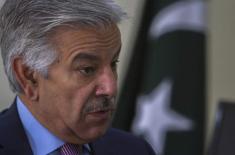
Chai Culture: Tea Is Considered As Lifeblood Of Daily Routines In South Punjab
Faizan Hashmi Published May 21, 2025 | 11:40 AM

MULTAN, (UrduPoint / Pakistan Point News - 21st May, 2025) As the world celebrates International Tea Day , tea remains a big part of daily life in Pakistan. It is more than just a hot drink but also a part of our lovely culture, hospitality, and social life. From small tea stalls in villages to big hotels in cities, tea is liked everywhere in the country.
Almost every Pakistani takes tea whether rich or poor, young or old. A cup of "chai" is the first thing offered to guests. It is served at weddings, family meetings, and even during business talks. People consume it at home, at work, in shops, or while traveling. In simple words, tea is part of our identity.
At a busy tea stall at Pipli town in Vehari Muhammad Ramzan sells tea every day. “I have been doing this for 18 years. The price of milk and sugar has gone up, so I now sell a cup for Rs 70, but people still come. Nobody wants to skip tea,” he says while serving customers. He however added that he used to offer even half cup of tea against concessional price to the poor.
Even in big restaurants and cafés in Multan, a cup of tea now costs Rs 250 to 300.
But many people still go and enjoy it. Ayesha Saleem, an M Phil scholar says, “We come here with friends. Tea gives us comfort. We feel relaxed.”
There are millions tea stalls working across the country. These stalls give jobs to many people, like tea makers, helpers, waiters, and milk suppliers. Many families run their homes with the income from tea business.
Tea is also a symbol of togetherness. In villages, men sit on 'charpoys' and talk over tea. In cities, young people go to tea cafés to talk, study, or share poetry. In sad times, tea is served to bring calm. In happy times, it adds joy, said Riaz Lodhi, a government employee.
Even with rising prices, people don’t stop taking tea. Pakistan spends millions of Dollars every year to import tea from other countries. Still, its demand is growing.
Abdur Rehman, a daily wager, shares, “When I lost my job, I had to cut many things from my life. But I still take one cup of tea daily. It gave me strength.”
Recent Stories

Indian media question arrest of Prof Ali Khan over remarks criticizing BJP

Pakistan announces 16-member squad for T20I series against Bangladesh

Four children killed, several injured in Balochistan's Khuzdar bus blast

Currency Rate In Pakistan - Dollar, Euro, Pound, Riyal Rates On 21 May 2025

Today Gold Rate in Pakistan 21 May 2025

Minister for Defense Khawaja Muhammad Asif urges PTI to change attitude for ta ..

Syed Asim Munir's promotion to Field Marshal: A landmark in Pakistan’s militar ..

Wali Khan congratulates Asim Munir on promotion to Field Marshal rank

Balochistan govt committed to promote quality education, restores 2800 schools: ..

Fire disrupts power supply in several areas

Salik congratulates Syed Asim Munir on becoming Field Marshal

Aleem congratulates Syed Asim Munir on promotion to Field Marshal
More Stories From Pakistan
-
Heat stroke claims minor life
9 minutes ago -
Chai Culture: Tea is considered as lifeblood of daily routines in south Punjab
9 minutes ago -
Romanian ambassador meets Commissioner Gujranwala to discuss trade opportunities
19 minutes ago -
Tributes paid to Mirwaiz Farooq, Ghani Lone and martyrs of Hawal
19 minutes ago -
Crackdown expected as over 1,000 kanals of drainage land illegally occupied in Abbottabad
19 minutes ago -
Police resolves blind murder case
19 minutes ago
-
26 criminals netted
29 minutes ago -
Shafqat Shah congratulates COAS on historic promotion to Field Marshal
29 minutes ago -
ANP President visits Jangalkhel to condole Tahir Shinwari's death
29 minutes ago -
DSP chairs PLC' meeting to provide relief to people
29 minutes ago -
Four Children killed in Khuzdar School Bus Blast, Interior Minister strongly condemns attack
59 minutes ago -
AJK CJ Justice condoles Pak Army Maj. Gen. Kashif Azad's aunt demise
59 minutes ago